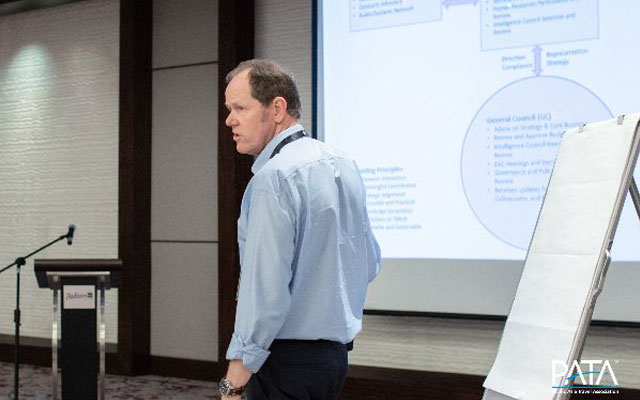
The Pacific Asia Travel Association (PATA) has made significant changes to the design of its organisational governance at the recent Board Meeting and Annual General Meeting held on October 12 and 14, respectively.
The major changes are a shift from an appointed Board to an elected Board by all members that is also substantially reduced in size, in addition to a reduced and fully elected Executive Board.

A feature of the new design is a shift from an expansive array of committees to Expert Task Forces (ETFs), which draw upon the deep knowledge and experience within the PATA network to address issues of interest to the Association and the industry. The ETFs are established to focus on a specific task within a specified time-frame and disband upon completion. New ETFs will be formed on new issues as they arise.
The goal is to enable the active engagement of members in dynamic and meaningful activities that support PATA’s purpose of facilitating the responsible development of travel and tourism in the Asia Pacific region.
Over the past year, three pilot ETFs have been formed. Two ETFs helped frame and facilitate the development of the PATA Crisis Resource Center and Tourism Recovery Monitor, both designed to support members through the challenges of the Covid-19 pandemic and assist towards recovery. A new ETF is currently in process to help envision the future of PATA in a post-Covid-19 environment to maximise benefits for current and future members of the Association.
The new structure is also designed to enable a voice for all members. The ETFs along with the Board, Executive Board, and Management initiatives will encourage greater member engagement through ‘micro-volunteering’ by facilitating ‘bite-sized’ feedback on issues that matter to members, while assuring the agenda remains relevant, timely, dynamic, engaging, and beneficial for all industry stakeholders.
PATA will retain a balance of public and private sector members in the new design, but the changes will enable broader participation of members to facilitate greater equity and diversity in all aspects of governance and operation.
This change in organisational governance has been in the works over the last three years, during which PATA reviewed leading organisational models and consulted with a wide range of experts to create a design that modifies and refines the Association for more efficient outcomes and engaged participation.



















